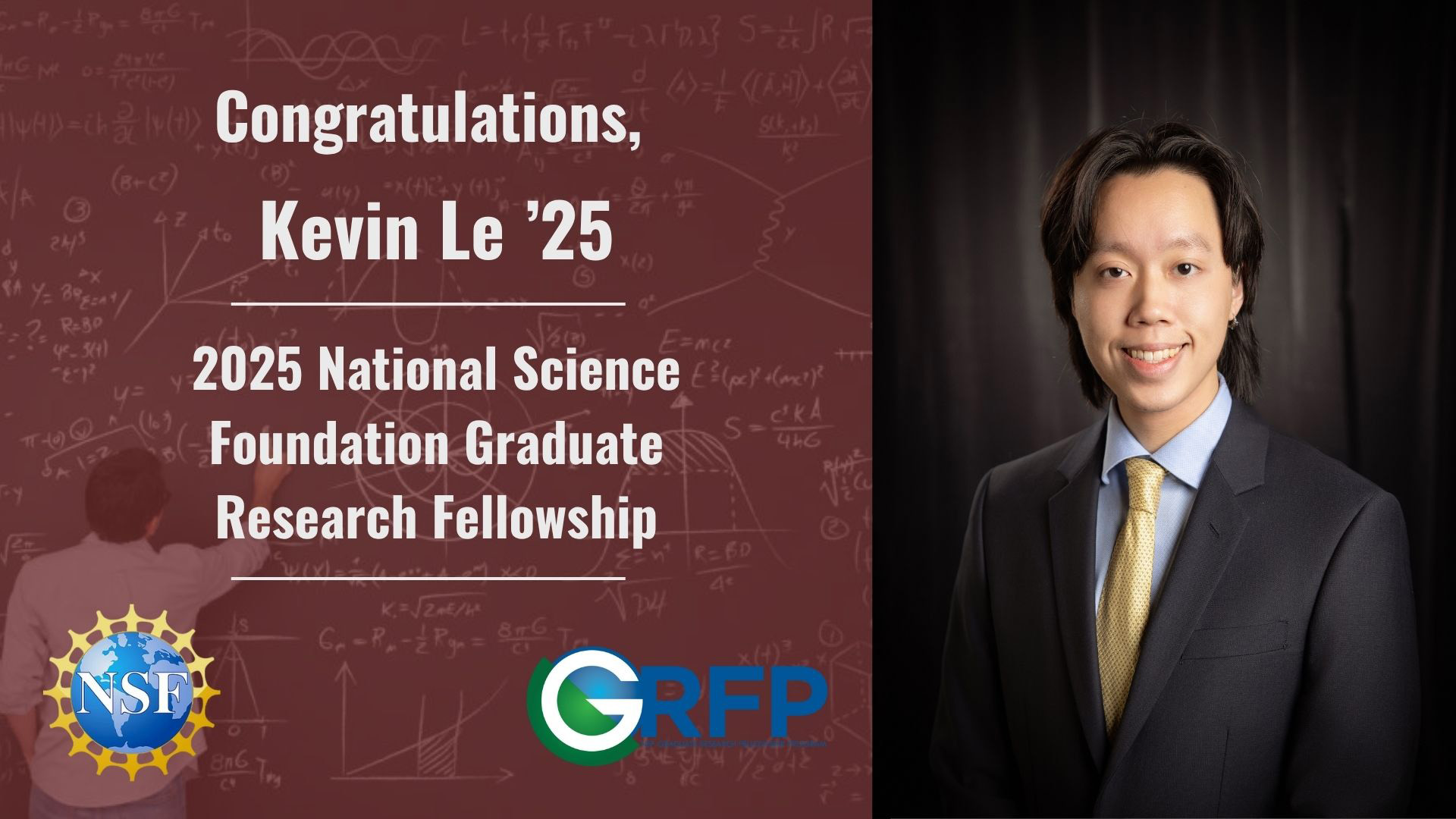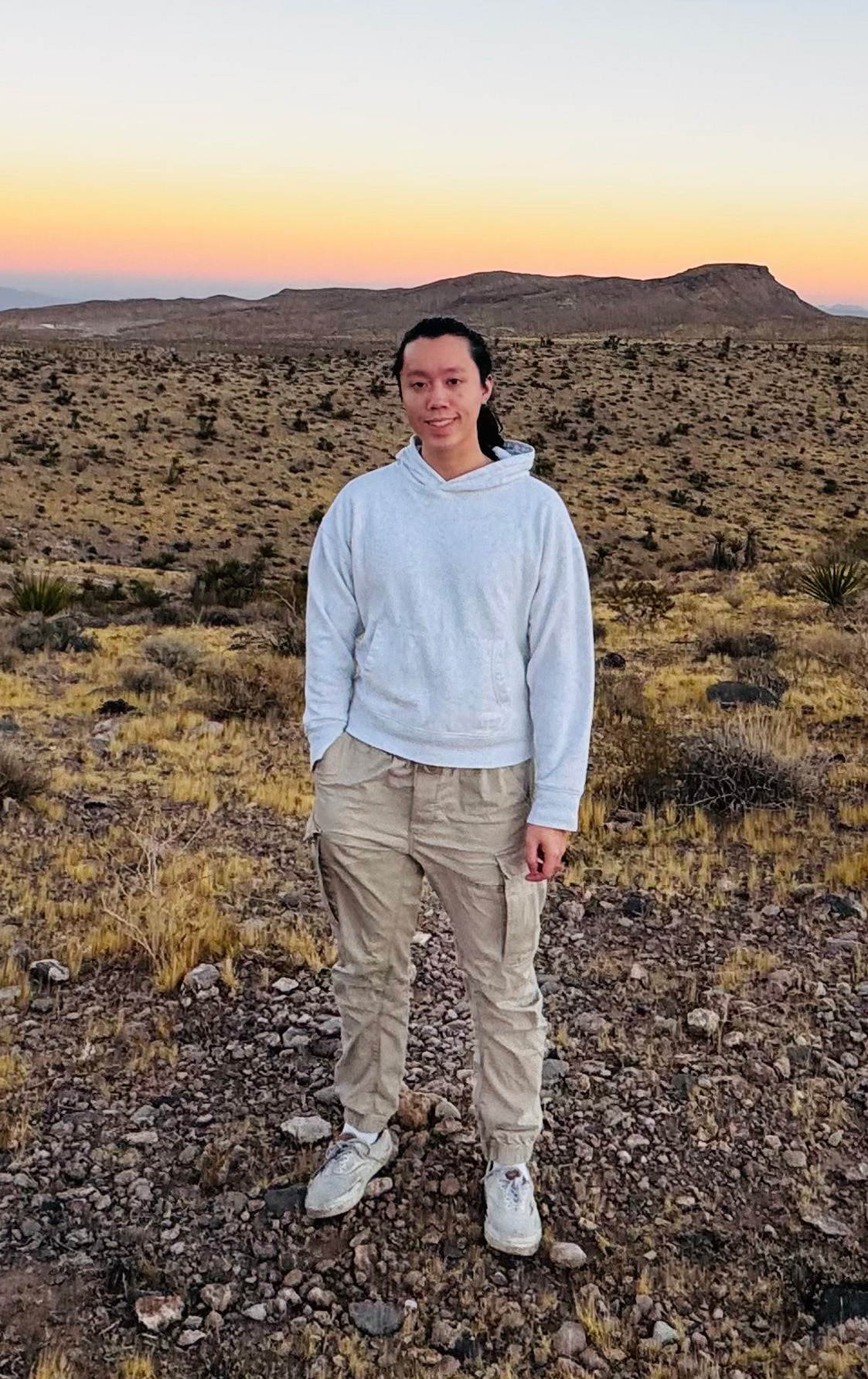
Recent Texas A&M University mathematics graduate Kevin Le has been selected to receive the 2025 National Science Foundation Graduate Research Fellowship, one of the nation’s most competitive awards for promising researchers.
Le’s research centers on two foundational areas in mathematics: number theory, which provides the foundation for secure communication systems, data encryption and algorithms used in computer science; and representation theory, which uses linear algebra to understand various physical systems including social interactions and even quantum mechanics.
“This award means a lot to me personally,” Le said. “It was a difficult application season due to increasing competitiveness and funding cuts. I plan to use the stipend to allow for more time to dedicate to my research and thesis.”
The National Science Foundation Graduate Research Fellowship Program (NSF GRFP) supports graduate students pursuing research-based master’s and doctoral degrees in science, technology, engineering and mathematics (STEM) disciplines. Each April, the foundation awards a select number of fellowships that provide five years of support, including a three-year annual stipend of $37,000 and additional funding for tuition and fees. In an especially competitive year, the NSF awarded only 1,000 fellowships nationwide, cutting the usual cohort of 2,000 in half.

Le’s previous research includes computational and analytic number theory along with finite representation theory. He has presented his work at the Joint Mathematics Meetings in both 2024 and 2025, as well as the Astronaut Scholar Conference following his recognition as a 2024 Astronaut Scholar.
This fall, Le will start graduate school at Duke University, where he will pursue a doctoral degree in mathematics with a continued focus on number and representation theory.
“I’m really looking forward to graduate school,” Le said. “I’ll be able to learn more complex math and have the opportunity for hands-on research.”
The NSF fellowship will financially support Le during the final three years of his Ph.D. program, relieving him of his teaching duties and allowing him to concentrate on his research and thesis.
Le credits his success to the many mentors who supported him through his undergraduate career, including the pivotal roles of Dr. Matthew Young from Rutgers University, and Dr. Frank Sottile from the Department of Mathematics at Texas A&M.
“I’ve had so many mentors who made my experience really successful,” Le said. “I’m incredibly grateful for their support and the opportunities they gave me to grow as a mathematician and researcher.”
This award highlights not only Le’s personal accomplishments but also the strong academic foundation and research opportunities provided by the College of Arts and Sciences.
In addition to Le, the following individuals represent the College of Arts and Sciences from Texas A&M in this year’s NSF GRFP class: Jordan Patrick Pierce (geosciences and oceanography); John Dixon (astrophysics); and two chemistry graduates, Ryan O’Shea and Saim Waheed.
Learn more about the NSF Graduate Research Fellowship Program and similar awards recognizing student academic achievement available through Texas A&M LAUNCH.

